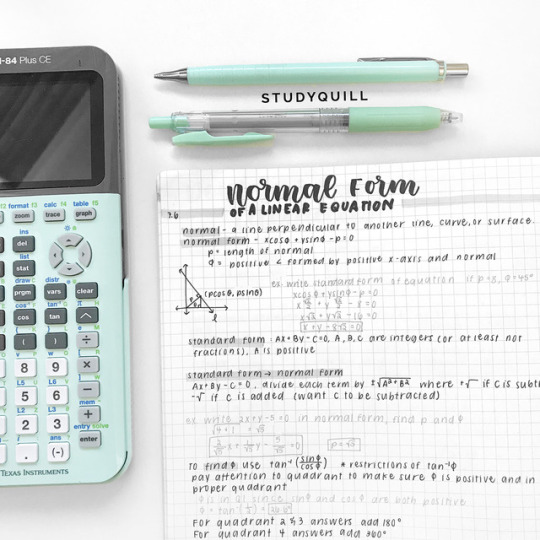Photo

models: @esra.elbasan & @sara.maricevic 🌻 (at KARE Deutschland)
https://www.instagram.com/p/B0LZgjHoiCB/?igshid=zlwnxlig4aki
187 notes
·
View notes
Text
Tips to learn a new language
The 75 most common words make up 40% of occurrences
The 200 most common words make up 50% of occurrences
The 524 most common words make up 60% of occurrences
The 1257 most common words make up 70% of occurrences
The 2925 most common words make up 80% of occurrences
The 7444 most common words make up 90% of occurrences
The 13374 most common words make up 95% of occurrences
The 25508 most common words make up 99% of occurrences
(Source: 5 Steps to Speak a New Language by Hung Quang Pham)
This article has an excellent summary on how to rapidly learn a new language within 90 days.
We can begin with studying the first 600 words. Of course chucking is an effective way to memorize words readily. Here’s a list to translate into the language you desire to learn that Derek Roger suggested! :)
EXPRESSIONS OF POLITENESS (about 50 expressions)
‘Yes’ and ‘no’: yes, no, absolutely, no way, exactly.
Question words: when? where? how? how much? how many? why? what? who? which? whose?
Apologizing: excuse me, sorry to interrupt, well now, I’m afraid so, I’m afraid not.
Meeting and parting: good morning, good afternoon, good evening, hello, goodbye, cheers, see you later, pleased to meet you, nice to have met.
Interjections: please, thank you, don’t mention it, sorry, it’ll be done, I agree, congratulations, thank heavens, nonsense.
NOUNS (about 120 words)
Time: morning, afternoon, evening, night; Sunday, Monday, Tuesday, Wednesday, Thursday, Friday, Saturday; spring, summer, autumn, winter; time, occasion, minute, half-hour, hour, day, week, month, year.
People: family, relative, mother, father, son, daughter, sister, brother, husband, wife; colleague, friend, boyfriend, girlfriend; people, person, human being, man, woman, lady, gentleman, boy, girl, child.
Objects: address, bag, book, car, clothes, key, letter (=to post), light (=lamp), money, name, newspaper, pen, pencil, picture, suitcase, thing, ticket.
Places: place, world, country, town, street, road, school, shop, house, apartment, room, ground; Britain, name of the foreign country, British town-names, foreign town-names.
Abstract: accident, beginning, change, color, damage, fun, half, help, joke, journey, language, English, name of the foreign language, letter (of alphabet), life, love, mistake, news, page, pain, part, question, reason, sort, surprise, way (=method), weather, work.
Other: hand, foot, head, eye, mouth, voice; the left, the right; the top, the bottom, the side; air, water, sun, bread, food, paper, noise.
PREPOSITIONS (about 40 words)
General: of, to, at, for, from, in, on.
Logical: about, according-to, except, like, against, with, without, by, despite, instead of.
Space: into, out of, outside, towards, away from, behind, in front of, beside, next to, between, above, on top of, below, under, underneath, near to, a long way from, through.
Time: after, ago, before, during, since, until.
DETERMINERS (about 80 words)
Articles and numbers: a, the; nos. 0–20; nos. 30–100; nos. 200–1000; last, next, 1st–12th.
Demonstrative: this, that.
Possessive: my, your, his, her, its, our, their.
Quantifiers: all, some, no, any, many, much, more, less, a few, several, whole, a little, a lot of.
Comparators: both, neither, each, every, other, another, same, different, such.
ADJECTIVES (about 80 words)
Color: black, blue, green, red, white, yellow.
Evaluative: bad, good, terrible; important, urgent, necessary; possible, impossible; right, wrong, true.
General: big, little, small, heavy; high, low; hot, cold, warm; easy, difficult; cheap, expensive; clean, dirty; beautiful, funny (=comical), funny (=odd), usual, common (=shared), nice, pretty, wonderful; boring, interesting, dangerous, safe; short, tall, long; new, old; calm, clear, dry; fast, slow; finished, free, full, light (=not dark), open, quiet, ready, strong.
Personal: afraid, alone, angry, certain, cheerful, dead, famous, glad, happy, ill, kind, married, pleased, sorry, stupid, surprised, tired, well, worried, young.
VERBS (about 100 words)
arrive, ask, be, be able to, become, begin, believe, borrow, bring, buy, can, change, check, collect, come, continue, cry, do, drop, eat, fall, feel, find, finish, forget, give, going to, have, have to, hear, help, hold, hope, hurt (oneself), hurt (someone else), keep, know, laugh, learn, leave, lend, let (=allow), lie down, like, listen, live (=be alive), live (=reside), look (at), look for, lose, love, make, may (=permission), may (=possibility), mean, meet, must, need, obtain, open, ought to, pay, play, put, read, remember, say, see, sell, send, should, show, shut, sing, sleep, speak, stand, stay, stop, suggest, take, talk, teach, think, travel, try, understand, use, used to, wait for, walk, want, watch, will, work (=operate), work (=toil), worry, would, write.
PRONOUNS (about 40 words)
Personal: I, you, he, she, it, we, they, one; myself, yourself, himself, herself, itself, ourselves, yourselves, themselves.
Possessive: mine, yours, his, hers, its, ours, theirs.
Demonstrative: this, that.
Universal: everyone, everybody, everything, each, both, all, one, another.
Indefinite: someone, somebody, something, some, a few, a little, more, less; anyone, anybody, anything, any, either, much, many.
Negative: no-one, nobody, nothing, none, neither.
ADVERBS (about 60 words)
Place: here, there, above, over, below, in front, behind, nearby, a long way away, inside, outside, to the right, to the left, somewhere, anywhere, everywhere, nowhere, home, upstairs, downstairs.
Time: now, soon, immediately, quickly, finally, again, once, for a long time, today, generally, sometimes, always, often, before, after, early, late, never, not yet, still, already, then (=at that time), then (=next), yesterday, tomorrow, tonight.
Quantifiers: a little, about (=approximately), almost, at least, completely, very, enough, exactly, just, not, too much, more, less.
Manner: also, especially, gradually, of course, only, otherwise, perhaps, probably, quite, so, then (=therefore), too (=also), unfortunately, very much, well.
CONJUNCTIONS (about 30 words)
Coordinating: and, but, or; as, than, like.
Time & Place: when, while, before, after, since (=time), until; where.
Manner & Logic: how, why, because, since (=because), although, if; what, who, whom, whose, which, that.
240K notes
·
View notes
Text
Things NOT To Do When Studying
I was going through some old papers from freshman year and I was thinking about what I was doing wrong when I didn’t achieve the grades I wanted, even though I got As in my classes. What things could I have done better to get a 100 instead of a 96? I don’t ask myself this so much as to be a perfectionist (even though I am one). I ask myself these questions because: 1) I must not have had a completely solid understanding of the material if I couldn’t get a 100 on it. 2) Maybe my less-than-stellar test-taking skills got in the way. 3) I’m a tutor, so I want to be sure I understand everything thoroughly enough to help others with the material.
I may add to this later, so you can always check out the original post here. As always, feel free to comment or message me if you want to add something to this list!
General:
Don’t simply read over your notes to study. It doesn’t work. You might pick up pieces here and there or even memorize certain things verbatim, but reading something 20 times is very inefficient. Your brain learns by making connections, so if you’re only straight reading the material you’re not making extra connections. You’re much better off going through your notes to make your own questions and quizzing yourself on them, marking down connections as you read (either in the margin or by literally connecting them in the text with a pen), or creating a study sheet (whether in text format or a mind map).
Don’t simply highlight, either. While there is a proper way to highlight, most people I see using a highlighter are doing it wrong. If you’re the person who highlights 90% of the paragraph, I’m talking about you. Okay, so highlighting is physically more active than glancing over your notes 20 times, but it’s about equally as effective if you’re highlighting everything. I recommend instead highlighting (or marking with eraseable pencil) things you want to go back to later. But, again, highlighting and reading alone is not useful. Go back to your highlighted parts to reread something that was hard to understand the first time, a topic you want to revisit to make a review sheet, etc. Whatever you use it for, make sure the purpose is to quickly find information later, not simply so you can read those things again. Try making a study sheet, in your own words, based off of your highlighting.
Don’t forget to write things down. And I don’t mean just in your planner when you have homework or papers due. This isn’t so much about getting absolutely everything down in terms of notes, either, I have a separate post regarding that. But in class you should always write down questions you have and the answer. If you don’t get a chance to ask during class, ask ASAP whether it’s directly to your teacher or asking a classmate. If it’s that important, do some research on it, too. Also, make sure you write down information on due dates or paper topics. You probably already do that, but I would recommend having a piece of paper with you every day where you can write anything important down like dates and to-dos to organize all in one shot. If you simply write down “paper due” in a block in your planner before rushing to the next you may not see that reminder until close to the due date. I like to take all of the information on the piece of paper (which also has my day planned out and a to-do list) right when I get up in the morning so I’m prepared for the day and don’t forget anything.
What I Did Wrong:
Don’t take it easy at the start of the semester. To be perfectly honest, I’ve pretty much always done that, but my freshman year of college it wasn’t a huge deal since I pretty much already took those classes. Sophomore year, however, everything was new, so memorization and understanding didn’t come quite as easily. The harder your classes are, the more essential this is, especially if you actually want to sleep during finals week. The best thing you can do is start doing work before the semester even starts if you have a syllabus handy, or even just looking through your books to see what’s ahead. While everyone else is doing fun things the night of that first day, make sure you get some work done first before you have your fun. This sets the tone for the rest of the semester and gets you into the habit of working. Don’t let yourself get behind! It’s easier to stay ahead than it is to struggle catching up.
Don’t leave your notes to rot after class. Meaning, do something with them right after class! … or at least ASAP. Mark them up, edit them, rework them, copy or type them (if your handwriting sucks like me), or, best of all, write a short summary. Take the several pages of notes you have and condense them into one or two paragraphs. Don’t worry about the details, just make sure you’re hitting on the key points. As a bonus, you can type up some questions based off of your notes to save for later studying (details are allowed here). Everything will be fresh, making this a much easier process than if you did it right before the test. At the end of the week, make a summary of your summaries and quiz yourself on the questions you made. You’ll probably want to use those questions again, so try to reword them or even combine them into bigger questions that cover many topics. That way you’re being active with the material and will actually understand what you’re answering as opposed to parroting.
Don’t make study sheets by copying off of something else. Yes, I made this mistake. I wasn’t copying initially, but rather, using a review book as a reference to make study sheets. However, the more I was pressed for time the less I started putting things into my own words. Now, this wasn’t a big deal in terms of legality, since I kept them to myself, but it didn’t turn out to be all that helpful in the end. If you want to make study sheets, you could either take concepts you’ve been learning and put them together in different ways or make a summary in your own words. I recommend both, but whatever you do, make sure you’re actually creating something new or else you’re not going to remember it. For example, in organic chemistry I took the reactions and grouped them in different ways (by subtstrate, reactants, products, etc.) as a reference while studying. The act of sorting and looking through the reactions in order to make the sheets helped me remember them, then I had the sheets to look at while doing practice to help me memorize them further.
Don’t save the bulk of lab work for after the lab and don’t wait to write your report. By this I’m referring to the post-lab report. Spend the extra time while prepping your pre-lab materials to start your report! You’re expected to know the theory behind your labs before you perform them, so writing the introduction to your report should not be a problem. If it is, then you’ll be glad you took the time to understand the lab before you tried actually doing it. By doing this you may also find that you have questions that can be answered by the professor before you get confused in the middle of a procedure. Also make sure you have data tables prepared (not just in your notebook, but in the report file to fill in after) and anything else you’ll need to take down data. Once the lab is finished do the report immediately. Everything you did will be fresh and you’ll be glad you finished it well ahead of the deadline. At this point you can show your lab to your professor and get any corrections fixed so you’re ashooin’ for an A!
Don’t try to write a paper in one shot. I understand if you feel like your papers flow better if you do it all in one shot, but at least make sure you plan it out thoroughly ahead of time before you actually write it all out. But even then, you will likely benefit from splitting your paper into chunks to tackle one day at a time. If you have a research paper that’s double-digit pages then you’ll be forced to do that anyway, but be sure you’re splitting up the work for small papers, as well. It may not seem like a big deal to do a short paper in one day, but if you end up having other assignments or tests due around the same time it might up your stress if you’re crunched for time trying to finish that “insignificant” paper while juggling a few other assignments as well as some test prep.
Advice Suggested By Others:
Don’t listen to distracting music while studying. To some degree, the types of music that are considered “distracting” vary when it comes to the subject you’re studying and personal preference. However, the general rule of thumb is that you avoid any sort of music with lyrics if you’re studying a subject that involves language. Art, math, and certain sciences are an exception if you’re working with pictures or numbers, since language usually doesn’t interfere with those things in the brain. But if you’re reading anything, even if it’s worded directions to a math or science problem, lyrics will probably be distracting. Some people suggest that listening to new music with lyrics is okay because you won’t be tempted to sing along with something you don’t know while others get distracted by hearing any type of language. Again, it’s truly up to you, but genres such as classical, jazz, and nature sounds are usually recommended. Heck, if you’re a musician and get distracted by any type of music, silence or brown noise may be the better option for you. (Suggested by aslongasitsfiction)
Don’t study in bed. Scientific studies have shown that doing anything in your bed that isn’t sleep or sex-related affects your ability to fall asleep in your bed. When your brain primarily associates your bed with sleep, it’s much easier to fall asleep. But having trouble sleeping in your bed isn’t the only part of the problem. While studying in your bed is really comfy, you’re also more likely to fall asleep if the association with sleep is strong enough. It’s generally recommended that you don’t even study in the same room as your bed, but as college students this may not be possible if you want to use your desk. So if you don’t want to make the trek out to a more secluded study space, at least try to make sure your desk doesn’t have your bed in view. Because let’s be honest, if you’re exhausted, simply seeing your bed might be enough to make you nod off. (Suggested by rare-footage and ane-mia)
Don’t go on tumblr. Okay, this may seem obvious, but sometimes a reminder is all you need to get off your computer! I suppose it’s better that you’re looking up information to help you study, but I think we both know what the better choice would be. (Suggested by oneofakindgizibe)
Don’t study in a place you can’t focus just because your friends are there. Us humans are social animals. We like being around other people. But this can cause you problems if you’re trying to study. Unless you’re in a productive study group, make sure you separate study time and social time. You’re probably more likely to gravitate towards fun, social things over studying, so make sure studying is a priority and you get it done before seeing your friends. If you have a roommate or two, then your dorm room is probably not the right place to study. Find a few of your focus hotspots and go there for your study time. (Suggested by fitspoforever)
Don’t forget the little things you know you’ll need. This includes but is not limited to things such as chargers, books, snacks, and water. You don’t want to be in-the-zone and all of the sudden realize you need to run back to your dorm room to get a book. And then 10 minutes later realize you’re hungry and need to run to the cafeteria. If you don’t already have certain things that are always in your bag, simply keep a list of things you generally need to bring with you, leave it as a reminder on your desk, and check it over before you hit the library. (Suggested by fitspoforever)
Don’t take naps while studying without setting an alarm. Or even better, avoid naps all together. If you’re like me, 15-minute naps usually turn into 2-hour events. But regardless, if you need to get some extra sleep, get the extra sleep. It’s better to take a nap when you know you need it as opposed to falling asleep on your desk unexpectedly when you have a paper you need to get done for the next day. 15-20 minutes the recommended time for a short nap, but if you need something more robust, try for 90 minutes or use sleepyti.me to figure out the right time to wake up. (Suggested by fitspoforever)
Don’t wear uncomfortable clothes. I personally find that “dressing for success” works really well for going to lectures and virtually everything else, but terribly if you’re hitting the library for a long study session. You’ll probably wanna look cute if you’re heading somewhere public, but just make sure you’re comfortable. Yoga pants are fine for the occasion! (Suggested by fitspoforever)
21K notes
·
View notes
Photo

Applying & Freshman Year
Picking the right school infographic
Getting letters of recommendation
Tips on choosing a major
Choosing the right college
A guide to move-in day
Surviving your first day of classes
Choosing a major
Things you need to know before starting college
Senior checklist
What you need to know about admissions
Things to consider when choosing a major
What to expect at orientation
Tips for transfer students
What I learned my freshman year
Tips on choosing classes
Finding the best laptop
The truth about being undeclared
What NOT to do freshman year
Things to do the summer before you start
Writing a great application essay
Different types of colleges
Why your major matters
Pros and cons of taking summer courses
Pros and cons of attending a small college
How to be successful in community college
Freshman tips for the self-conscious
College prep timeline
Visiting colleges
Scheduling your classes
Why you should apply early
First week checklist
Things to do before you graduate high school
How to efficiently choose your classes
What colleges look at most on applications
Self-Care
How to be a morning person
Dealing with anxiety
Organizing your assignments
How to deal with burnout
Dealing with depression
Losing weight in college
Avoiding the freshman 15
More on dealing with anxiety
Practicing self-care
Overcoming shyness
ADHD & college
How to have “me time”
Taking care of your mental health
Remedies for homesickness
A healthy grocery list
Helpful exercise tips
Eating healthy in restaurants and the dining hall
Dealing with mental illness in college
Curing test anxiety
Managing mental health
Staying healthy
Getting through college when you don’t party
How to nap effectively
In Your Classes
How to master your toughest classes
How to raise your GPA
Handling a heavy course load
Preparing for new classes
Can I afford to skip class today?
Things to do in between classes
Things to do when starting new classes
Planning for a busy week
Passing an online class
Acing group projects
Why you’re not making the grades you want
Good note-taking tips
How to prepare for next semester
What to do if you’re failing
How to bounce back from failing a class
Ways to raise your grades
GPA calculator
Things to do during syllabus week
Making the most out of your syllabus
Mistakes to avoid in your classes
Note-taking in class
Cornell method of note-taking
How to remember what you wrote in class
How to correctly use a syllabus
MLA format
Weekly assignment printables
Studying & Essays
Why studying in advance helps improve grades
Gigantic study playlist
Anti-procrastination strategies
How to properly use Google for essays
Really cool motivation strategy for reading textbooks
Shortening/lengthening essays cheat sheet
Make an essay appear longer than it is
Ultimate guide to passing finals
Useful tips for all types of learners
How to write a great essay about anything
Make a study guide with Microsoft Word
Tools for writing an essay
How to write papers that will dazzle your professors
How to tackle a long-term school project
Writing thesis statements
What to do if you’re a few words short on an essay
How to make a paper look longer
Procrastination 101
The formula for writing long papers
How to write with clarity cheat sheet
Preparing for exams
Writing a research question
How to be study savvy
How to take notes from a textbook
Make a study schedule with Microsoft Excel
Helpful highlighting system
How to annotate text
Research terms defined
How to study effectively infographic
Forming good study habits
What to do if you don’t have enough time to finish a paper
How to prepare for a test
Really helpful website to work with on essays
How to memorize flashcards
Organizing classwork and notes
What I wish I knew before taking online classes
Study tips for different types of learners
Making a study guide with Microsoft Word
Make a finals study plan
Ways to start and end an essay
Pandora study stations
Automatic bibliography generator
Finances
Questions about buying textbooks
Guide to cheaply buying textbooks
A girl’s guide to saving money
Free college textbooks
Tips for managing your finances
Basic guide to couponing
Paying for college beyond the basics
Student discounts, pt. 1
Student discounts, pt. 2
Student discounts, pt. 3
Student discounts, pt. 4
Student discounts, pt. 5
Student discounts, pt. 6
Student discounts, pt. 7
Compare/buy/sell college textbooks
Websites for financial aid you should use
Ways to save money on expenses
The financial aid roadmap
Questions to ask about student loans
Financial advice from a grad student
Apps for budget-setting
Clothing stores with student discounts
How to make money in college
Student loan mistakes
How to attend college for free
Side jobs for students
Free school supplies
Easy ways to save money
Dorm room discounts
Free college textbooks
How to live on a budget
Finance tips
Printable financial planner
Expense tracker printable
Monthly budget printable
Tips to lower your grocery bill
Planning out your college finances
Things to know when completing the FAFSA
Miscellaneous
Backpack essentials
Tons of printables
Free binder spine labels
Staying safe
Life hacks for college students
Living with a roommate
Great time management system
Surviving your first party
College dating: expectations vs. reality
Packing list for a library study binge
Why you should try new things in college
Sample roommate contract
Surviving your first cold winter
Tips to navigate dating
Hard lessons you learn
Healthy dorm room snacks
How to own your hookups
The do’s and don’ts of talking to your professors
Time management tips
Juggling work and college
How to e-mail your professors
College care package items and must-haves
Apps for organization
What to do when life challenges threaten your academic success
Lily Pulitzer binder covers
Popular planners to use
College clubs that look great on a resume
Truths about sex in college
Class assignments template
Things to know before applying to grad school
How to stay organized throughout the year
Habits of highly successful students
Weekly meal prep
My favorite Dollar Tree organizing products
Ultimate organization guide
Campus security tips
23K notes
·
View notes
Text
hello old friend
last year I set out to use this account faithfully, documenting my personal growths and struggles as the year progressed. however, I see now that it proved harder than i thought it would seeing that I’m already not as huge of a social media user as I used. that I was I would like to propose the following:
I, the owner of the cute lil stumblr, set out to use this acc to document this up and coming school year faithfully. I will be uploading 3 times a week, Mondays with my weekly goals, Wednesdays with my mid week report, and Fridays with a recap.
At the beginning of each month I’ll be posting my goals for that month, any events or major tests I might have coming up, and some words of encouragement to keep you all, and myself, motivated. At the end of each month I’ll do a short recap of how my month went and what I expect from the month following.
I went into this without a clear vision of how I wanted my year to go. All the advice and motivation I received from the stumblr community was beyond helpful and I excelled in my studies because of it, but I just wasn’t as organized with it as I would’ve liked to be. This year (my junior year if anyone is wondering) I’m starting a new school in a new town. I’ll be taking this opportunity to wash the Slate clean and begin again.
Hopefully you all welcome me back with open arms as you had the first time because honestly I’m gonna need all the support I can get. 💛
3 notes
·
View notes
Text
📚 🌸 Attention studyblrs 🌸 📚
Since I’m new here, I’m not following a lot of people. Reblog this if your an active studyblr & I’ll check you out!
407 notes
·
View notes
Text
♡♡♡ hey everyone ♡♡♡
with school right around the corner (2 weeks for me) I thought it’d be a good time to get my shit together and start making some connections in the lovely community. I guess I’ll start off with a little introduction:
My name is T.k. the red nose reinQUEER ( lulah, Plant boi, Tallulah, Loser ect.) and I’m really into fine arts like painting dicks on walls and classical music… But no really, I actually do like art and will play the fuck outta any instrument with strings. Reading and writing are my passion, and Netflix and chill is a hobby. Other than obsessing over the angels I stan (lil peep, one direction, zendaya, pretty much all of the doctors from Doctor Who, rihanna, demi, ect) I also take my studies to a certain degree of seriousness. Although, I wouldn’t be me if I didn’t have some fun with it thus the birth of this account has happened.
As of this school year i’m 17 & a raging bisexual going into my junior year of highschool. I’d like to think that I’m pretty much a vvv nice person or at the very least a decent friend so if you ever need a shoulder to cry on, a study buddy, or just straight up wanna be friends hmu. In fact, all my followers and mutuals should use this post to make a friend or two this year. Converse in the notes, spread some positivity. ily all 💛
34 notes
·
View notes
Text
📖📚📝📕✏️📕📝📚📖
Test and Final Exam Spell so you can pass your upcoming tests.
Likes charges it, Reblogs cast it, Pass this around for others in need of passing tests and exams.
70K notes
·
View notes
Text
Mistakes are mistakes! Don’t let them bring you down! You can always improve, and almost nothing is impossible to fix!
Keep Trying!
If you think this is just another motavational post, you’re right!
I majorly fucked up this semester. I literally failed two out of four classes. Yes, that is half of my courses for the fall semester. I cried about it for about a month, as I knew failure was imminent. But, what I came to realize at this ungodly hour is…
- I’m young
- I’m dumb
- I’m fallible
- Everyone makes mistakes
- Nothing is permanent
- I can fix this
Yes, I literally failed two classes. Yes, I am upset. Yes, I may be put on Academic Probation. Yes, I may end up going over the credit limit.
But, I can fix this. I will survive. I will work harder. I will ask more questions. I will do everything in my power to make straight A’s. This is possible! I am possible!
If I, a anxious, OCD, ADD, freak, can fix my mistakes, so can you! I believe in you!
- R
#mistake#study motivation#motivational#studyblr#studyspo#motivational post#screw up#failed#failure#hopeful#triumphant#studies#studier#study#studyingchan#study-feather#study rose#study quill#rb#share#you can do it#i believe in you#r speaks#rspeaks
13 notes
·
View notes
Text
Pick your poison: how to start choosing universities to apply to
If you go to an american high school, you know that college stress season is in full swing, and it’s not going to end for a long time. For the seniors, this means for the most part that you’re applying to your universities, and possibly starting to get a few decisions from them. For the juniors and even underclassmen, this means that you have to start thinking about which universities you want to apply to. While you don’t have to have your list of dream colleges finalized by any means at this stage, here are five basic pointers to get you started on your college journey!
It’s never too early to start your college list. Seriously. It’s not. Start in your junior year. Sophomore year. Hell, you can even start looking at colleges during your freshman year. The advantage to starting your college search early is less stress. If you start looking early, you won’t be nearly as frazzled as your peers who started at the tail end of junior year will be. Starting early also allows you to look at more universities, and gives you more time to remove and change universities in your list.
Look for colleges that best fit what major you want to pursue. I’ve noticed that many people tend to look for colleges that rank the best, rather than looking at the specific programs that they offer. PLEASE DON’T DO THIS. The best college for pursuing a major in computer science will typically be very different than the best college for pursuing a major in political science. A liberal arts college usually isn’t the best place for a math major. Rather than looking up something like “top 20 universities in America,” look up “top 20 universities for an English major,” or whichever major or concentration you’re interested in. Don’t know what major you’re interested in yet? No worries! A great place to start is by looking up universities that have good programs in your favorite school subject. Your college search experience will be so much easier and more rewarding that way.
Go to college visits. When I started looking at colleges that I would potentially be interested in applying to, I didn’t realize the importance of going to visits. However, as I started to tour universities, my entire college list changed. I took some colleges out of my list, I added some, and I moved some around based on preference. What college visits do is allow you to explore the unique elements of some of their programs that you wouldn’t typically find on their website, get a feel for the student life, and really picture yourself in the university. If a college is too far away to drive to, look for when a university representative will be coming to your hometown, and try to attend those, as they can be extremely informative as well. But if you can drive to the university, do take advantage of it. It’s almost always free, and you can make a fun road trip out of it :)
When compiling your list, be sure to have a healthy mix of safety schools, match schools, and reach schools. For those who are unaware, a safety school is a college where your grades and test scores will generally be higher than that of the general population there. A match school is where your grades and scores will be similar to the general population there. A reach school is where your grades and scores will generally be lower than the general population there. Applying to all three types of colleges is very important. I’ve known people that only applied to their reach schools, and have gotten rejected from every single one. They didn’t apply to any match or safety schools, so they ended up not going to any school. At all. Don’t be one of these people! Even if you’re the smartest person in your school, admission is never 100% guaranteed into your reach. It’s called a REACH school for a reason. Make sure to look at and add match and safety schools to your list, so that you’re guaranteed to go somewhere.
And speaking of safety schools… don’t underestimate them! Another trend that I’ve noticed is people choosing safety schools that are the closest to them, or just picking a random one that they’ll “settle” for. And that’s honestly very sad and very impractical. You should be approaching your safety school options as you would with your match or reach school options. If you can’t picture yourself in that university, then don’t apply to that university. I won’t lie to you, there’s a chance that you will end up attending your safety school, so make sure that if that’s your path, you will be happy there. I know that if I end up attending the school that’s my safety, I would be ecstatic! You shouldn’t see your safety school as something that you’ll settle for.
To sum it up, the college selection process is definitely stressful, but it can also be a lot of fun if you want it to be! Remember that it is ultimately you and your family’s choice where you end up applying and attending, so be picky, be diligent, and above all, make sure that you love ALL of the universities you choose! This list is by no means comprehensive, but I hope that this helps to push you in the right direction when it comes to starting your college search. Please let me know if you would like a follow up to this list, and keep studying :)
224 notes
·
View notes
Photo
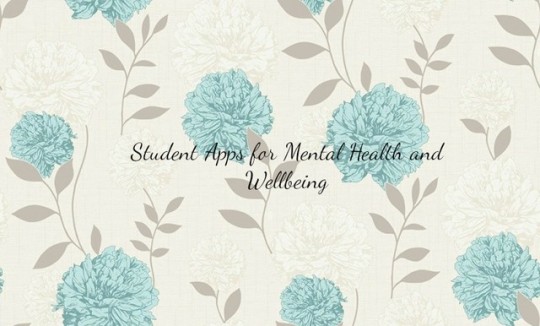
Technology is amazing for so many things and we live in an increasingly interconnected era. What many don’t realise is that our phones and devices are also great assets to help with our mental and physical wellbeing. Here’s a few of my favourite apps for that:
Self-Help/ General:
What’s Up? One of my favourites, amazing app to deal with depression, anxiety and other disorders. Habit and mood tracker, game to quell anxiety and bad thoughts, teaches you about behavioural patterns and even has a catastrophe scale to help you put problems into perspective. You need this.
Fabulous-Motivate Me! : Science-based coaching to help you reach your goals
Interact with people and get support:
7 Cups: If you ever need to talk to someone. Free counselling and support 24/7
Talk Life: Talk with people who get it, people going through the same things as you and make friends who understand
Vent: An online community where you create your own ‘social diary’ , make friends and get support from people willing to listen and give advice
Meditation and Mindfulness
Calm: Meditation and wellbeing
Headspace: You’ve probably heard of this one; guided meditation and mindfulness
Smiling Mind: Developed by psychologists and educators, an all ages meditation and mood tracking app
Pacifica: Cognitive Behavioral Therapy, mindfulness meditation, relaxation, and mood/health tracking
Concentration
Tide: My favourite, so aesthetic. Combines a focus timer with nature sounds to help you concentrate, very customisable with breaks and sound options. I really love it.
Atmosphere: Amazing range of sounds to suit what you need, whether that be to concentrate, sleep or simply relax.
Forest: You can plant a seed in Forest. In the following time, this seed will gradually grow into a tree. However, if you cannot resist the temptation and leave this app to check Facebook or play a game, your tree will wither away. Super cute app and actually partners with organisations to plant real trees! How awesome is that?
Water, Food & Medication:
Hydro Coach : Calculates how much water you need and sends you reminders to drink regularly
Plant Nanny: If Hydro Coach is too boring or not available for your device yet the idea of a water tracker and reminder is appealing, this is the app for you. So so adorable, by drinking water, you help your plant grow and get your own garden!
Medisafe: Keep track of not only your medication but also blood pressure, glucose and other measurements
Medication Reminder & Pill Tracker: Exactly what it sounds like and more, combining a pill tracker, mood tracker and a health journal.
Sleep
Sleep Cycle: An intelligent alarm clock that analyzes your sleep and wakes you in the lightest sleep phase – the natural way to wake up feeling rested and relaxed.
Sleep Better with Runtastic: Track your sleep cycle, monitor dreams, improve bedtime habits & wake up better
239 notes
·
View notes
Photo
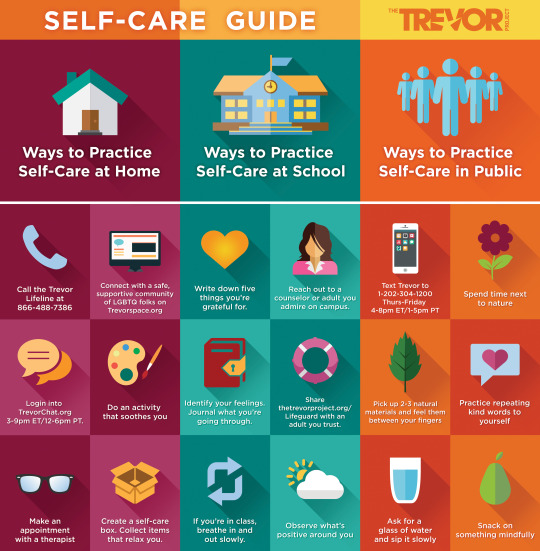
September is Suicide Prevention Month, and we’ve created free resources to download and share. Here’s our self-care guide, to help you during the back to school season with tips on how to practice self-care at home, at school, and in public.
One supportive person can prevent suicide. Communicating and connecting about suicide can be the first step towards empowering LGBTQ youth to get the care they need. We can all show LGBTQ youth that they are welcome, they are loved, and they deserve support.
Share any of The Trevor Project’s suicide prevention resources below to show how people can #SaveLGBTQLives.
6K notes
·
View notes
Photo
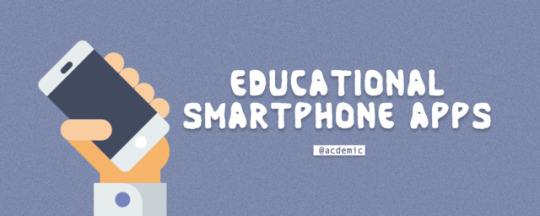
hey hello hi!!! it’s been ages (6 months?!) since my last masterpost, and i’ve been seeing so many great educational apps on the google play store. so here’s a list of some educational smartphone apps that you should check out!
disclaimer: i have not used most of these applications (i generally don’t use study or even productivity apps), so i’m recommending them based on reviews!
general education
curiosity [ play store, free ] [ apple, free ]
curiosity is a super cool app that’s all about learning new quirky facts! every 24 hours new content is released, including mind-blowing science, history and technology facts. it’s like having the best museum and the most fascinating library at your disposal.
coursera [ play store, free ] [ apple, free ]
with coursera, you can access more than 1,000 courses and specializations developed by 140+ of the best colleges and universities in the world, and master subjects from python programming and data science to photography and music.
edx [ play store, free ] [ apple, free ]
edx provides free online courses from the world’s best universities and institutions. there are so many topics to discover, including computer science, engineering, history, psychology, nutrition, big data, statistics and hundreds more. with edx, you have the flexibility to learn on your schedule. it is free education, when and where you want it.
khan academy [ play store, free ] [ apple, free ]
khan academy allows you to learn (almost) anything for free. browse over 10,000 videos and explanations at your fingertips in math, science, economics, history, and much, much more. sharpen your skills with over 40,000 interactive practice questions with instant feedback and step-by-step hints. khan academy is a wealth of resources and it’s all free!
note: i really really recommend khan academy! it is super helpful and there’s also the free sat prep (and the upcoming free lsat prep for people interested in law school)!!
udemy [ play store, free ] [ apple, free ]
udemy is your place to learn real world skills online. with over 32,000 online courses and tutorials, offered in more than 80 languages, you can choose from a wide range of topics to inspire creativity, hone your skills, be your own boss, and more. courses in everything from programming, it & software, business, marketing and entrepreneurship, health, design, languages, music, and much more.
goodwall [ play store, free ] [ apple, free ]
goodwall is basically a social network for students - you can share your skills and achievements and win scholarships (and even be recognized by colleges and universities!) when you join, you are eligible for a $500 weekly new student award, in addition to the $1000 student of the month scholarship. people seem to think that it’s a great way to connect to other motivated students throughout the world (obviously the studyblr community is The Best ;) but here’s an awesome alternative!)
schoold [ play store, free ] [ apple, free ]
schoold is a super cool app that allows you to find information on 3000+ colleges and 25k+ scholarships by major and admission chance. It also offers free college counseling (advice on applications, financial aid, majors, and careers) and future planning tools!
science
phywiz [ play store, free ]
need help with your physics homework? phywiz provides step by step solutions for questions in over 30 physics topics, including kinematics, forces, gravity, and quantum physics. ask phywiz a question like "if mass is 6 and velocity is 7, what is momentum?“ and get your answer immediately. many of the positive reviews call it “one of the best apps i’ve ever used”.
little alchemy [ play store, free ] [ apple, free ] [ website ]
this is such a cute game where you start with four elements and combine them to create interesting, fun and surprising items. it’s definitely addictive!
chemistry quiz [ play store, free ]
500+ quiz questions covering the elements, the periodic table, bonding and interactions, matter and mixtures, chemical reactions, acids and bases, organic chemistry, nuclear chemistry, history of chemistry, and labs.
skyview [ play store, free ] [ apple, free ]
a beautiful and intuitive stargazing app that uses your camera to precisely spot and identify celestial objects in sky, day or night. it’s a great app for people who love space but don’t want to purchase fancy equipment to enjoy its beauty. you can see what each star and planet is and where it’s going. be sure to calibrate it first!
coding
encode [ play store, free ]
encode is packed with bite-sized coding lessons that combine succinct explanations and clear real-code examples. it is a wonderful way for beginners to start programming.
sololearn has a ton of apps that are all about learning to code: java, c#, python, javascript, c++, etc.!
programming hub [ play store, free ] [ apple, free ]
your one-stop solution to learn all of the top programming languages! you can learn c, c++, java, html, javascript, r, css, vb.net, c#, python 2.7, python 3, linux shell scripting, swift, sql, jquery, and assembly 8086. there are over 1800+ pre-compiled programs with output for practice and learning. a new feature seems to be the programming-related interview questions that can help you prepare for a job interview!
codenza [ play store, free ]
codenza is a dictionary of 3000+ ready-made computer programs: the ultimate coding encyclopedia for university curriculum. codenza covers everything from computer graphs to artificial intelligence! note: codenza does not teach programming. it only provides programs and offers explanations for the more complex programs.
math
cymath [ play store, free ] [ apple, free ] [ website ]
stuck on a math problem? cymath allows you to enter your problem, and helps you to solve it step-by-step. topics include pre-algebra, algebra (equation solving, factoring, logarithms, exponents, complex numbers, quadratic equations, trigonometry, partial fraction, polynomial division, etc.), and calculus (product rule, quotient rule, chain rule, u-substitution, integration by parts, integration by partial fraction, trigonometric substitution, rationalizing substitution, etc.)
photomath [ play store, free ] [ apple, free ]
math is full of symbols that we are inconvenient to type, and photomath solves that problem: simply point your camera toward a math problem and photomath will show the result with detailed step-by-step instructions. there is a new feature of handwriting recognition as well!
mathway [ play store, free ] [ apple, free ] [ website ]
yet another math problem solver! this one allows you to type your problem or scan a picture of your problem. mathway covers basic math, pre-algebra, algebra, trigonometry, precalculus, calculus, statistics, finite math, linear algebra, chemistry, and graphing. one flaw seems to be that you need to be online for it to work, but otherwise, it’s a fantastic tool!
history
history timeline [ play store, free ]
okay, woah. this is a detailed timeline of world history with thousands of entries! it includes world history (events, nations, leaders, and wars) AND history of science, art, literature, music, and philosophy.
today in history [ play store, free ] [ similar apple, free ]
for the history enthusiast who wants to learn something new every day: today in history tells you what historical events happened on that day! it works offline and you can choose from over 50 languages.
ancient history encyclopedia [ play store, free ] [ website ]
thousands of informative and reliable articles on ancient history. articles are written with students in mind and are carefully reviewed to ensure accuracy, and are easy to read.
languages
duolingo [ play store, free ] [ apple, free ]
one of the leading language learning apps, duolingo gives you the ability to learn english, spanish, french, german, italian, portuguese, dutch, irish, danish, swedish, russian, ukrainian, esperanto, polish, and turkish for free. you can practice your speaking, reading, listening, and writing skills and improve your vocabulary and grammar.
productivity
forest [ play store, free ] [ apple, $1.99 ]
forest is a cute productivity app that keeps you off of your phone! you set a certain amount of time, and during that time a tree ‘grows’, but if you use your phone before the times up, the tree dies. :(
habitica [ play store, free ] [ apple, free ]
have you heard of ‘gamification’? habitica is an app that allows you to gamify your tasks! check off tasks to level up your avatar and unlock features such as armor, pets, skills, and even quests! it’s a great way to have fun while being productive!
note: habitica is another one of these apps that i’ve actually attempted to use - it is super cute and it’s definitely a great way to stay on track!
timetune [ play store, free ]
timetune is a great app for people who have established a daily routine or would like to. you can set up a routine (or multiple routines) and add your daily tasks. it can be used as a daily task reminder, student calendar, timetable planner, routine schedule organizer, routine optimizer, habit creation tool, daily time manager, or daily planner.
ike [ play store, free ]
ike is a to-do list that uses eisenhower’s priority matrix. you can organize your tasks by importance and urgency, and add all sorts of details such as due dates and location reminders.
habithub [ play store, free ]
habithub is based on seinfeld’s productivity secret, which involves building long streaks of days that will motivate you to keep moving forward. (snapchat for habits? i think yes!) it includes a full calendar view for every habit, reminders, compatibility with smartwatches, the option to write notes every day, more flexible goals, the ability to categorize your habits, and graphs that show you how you’re doing. the interface looks beautiful and people seem to love the abundance of settings.
pomotodo [ play store, free ] [ apple, free ]
there is an abundance of pomodoro timers in the app store, and pomotodo is one of them! pomotodo easily syncs across platforms, has advanced to-do list options, the ability to customize pomo and break times, offers background noise to keep you focused, and sends you weekly email reports to help you track your productivity.
i don’t want to list a ton pomodoro apps in this masterpost, but here are the many options on google play store!
alright, that’s all i’ve got for you today !! i hope that this was helpful, and feel free to send me an ask with any questions, suggestions for future masterposts, or your recommendations for other study apps/websites!! :) have a great day!
icon by madebyoliver
8K notes
·
View notes
Photo

School can be exhausting so these are my ways of dealing with stress and I’m, obviously, not an expert, but it helped me.
Take a bath
Get a bath bomb, shave your legs, and just relax in the warm water
Get an adult coloring book
I can’t tell you how much getting a coloring book helped me with stress. When I have free time, or a free class, or I just feel like coloring, I get my coloring book and just start.
Draw / doodle
Have a sketchbook where you can draw little things, or even big things. Draw random stuff that comes to your mind to free your thoughts. If you are bad at drawing, don’t worry cause it’s your private thing and you don’t have to show this to anyone.
Paint
Same as drawing but this time instead of just a pencil, use watercolors or ink or markers, whatever you want and have. Create a masterpiece and if you like it pin it on your wall to remind you that you can do great things!
Do some origami
You have a ton of YouTube videos of how to do some basic origami. Fold your paper and enjoy your finished work.
Stretch
After a study session, stretch from head to toe. You will feel better because blood will easily come to your brain and you won’t have any back pain for sitting too long.
Exercise
Every day, at morning or at night (or both if you are available) do some exercises for 20-30 minutes. If you are not that into exercising, you could dance with some up-beat music like nobody is watching.
Go for a quick run or ride a bike for 5 minutes
It will boost your energy and you will go outside and see the actual sun, or even clouds. Fresh air is really important for your health, so are little things that boost your energy.
Listen to music
Maybe you are listening to music while studying, but listening to music while doing nothing else is also great. On the ride on the bus/train or whatever you’re taking, get some headphones and jam to your favourite music.
Take a nap
You come from school exhausted and you know you need to study, but it’s really hard for you to focus, just take a nap. Or if you are studying for 3-4 hours straight for that test tomorrow or writing a extra long essay - take a nap. 15-20 minutes is enough.
Get a diary or journal and write it down
Recently I started again writing into a diary (I haven’t done that since I was 12-13) and I can’t tell you how much better I feel after writing my thoughts down on paper. For me, writing with a pen/pencil instead of typing had me more focused on actually freeing my thoughts, but if you want to type you can. Also, it is funny to read some of your daily entries after a couple of years.
Meditate
Lay on your back, or sit on a comfortable chair, close your eyes and just breathe. Try not to think of your work, or problems and just breathe. If you are religious, you can also pray.
Clean your room
Clear room = clear mind. Having a nice and tidy room helps me more to focus and not to think of the mess surrounding me. Also, cleaning can be calming and stress relieving, if you focus on cleaning instead of your thoughts.
Drink a glass of water
You will be more hydrated and feel much better. So just drink your water.
Eat a fruit
It’s healthy and sweet, what else is there to say about?
I hope some of those help you. Keep in mind that you, obviously, don’t have to everything everyday. Doing a few of these will really be beneficial for your mental health and your body.
Sending much love to you all, V. ❤
3K notes
·
View notes
Photo
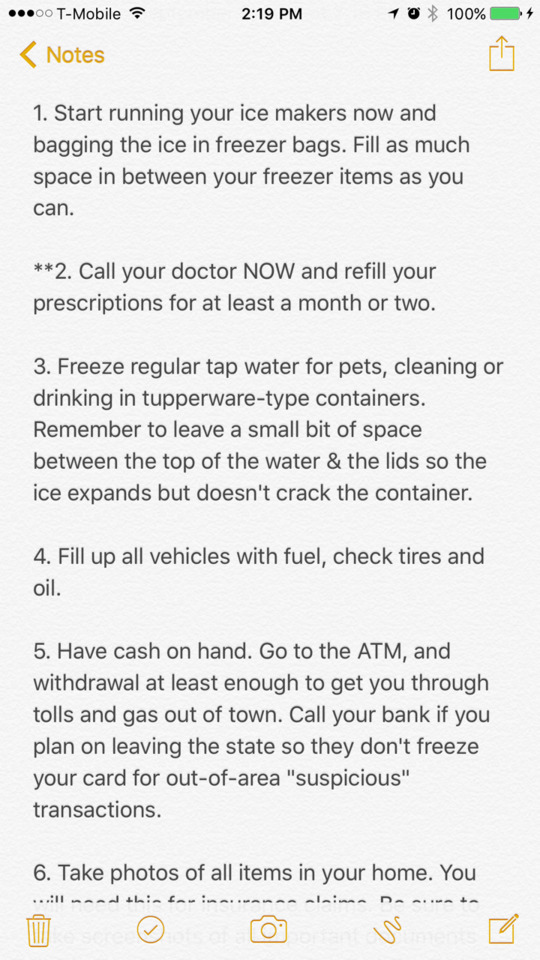
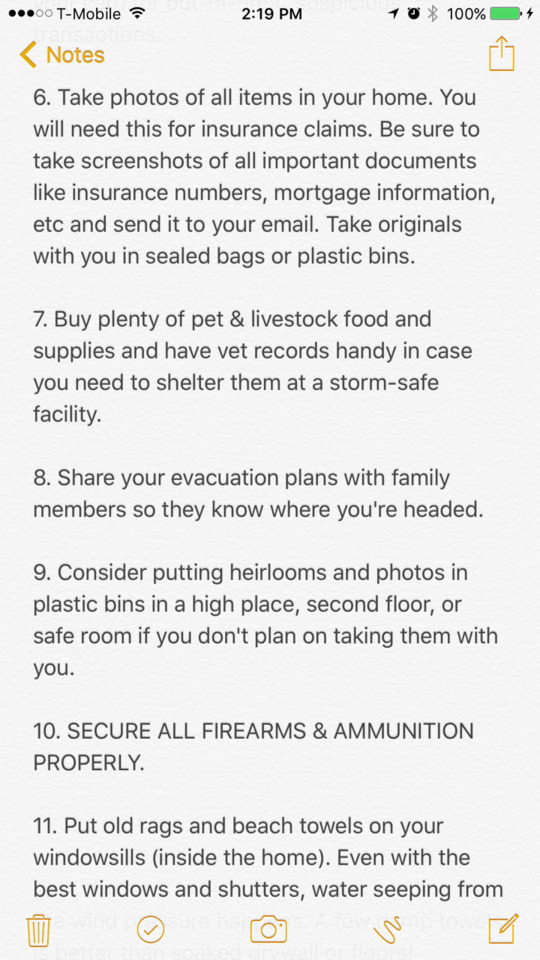
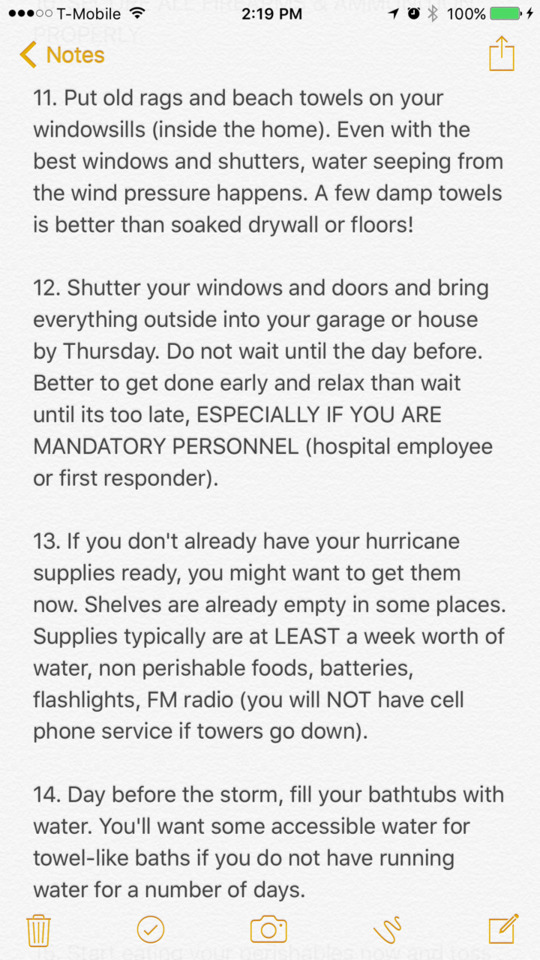
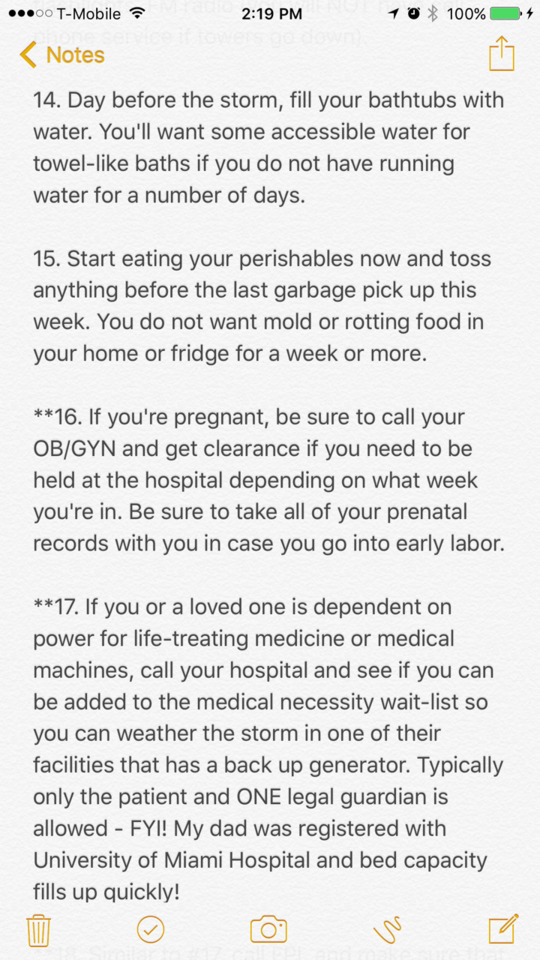
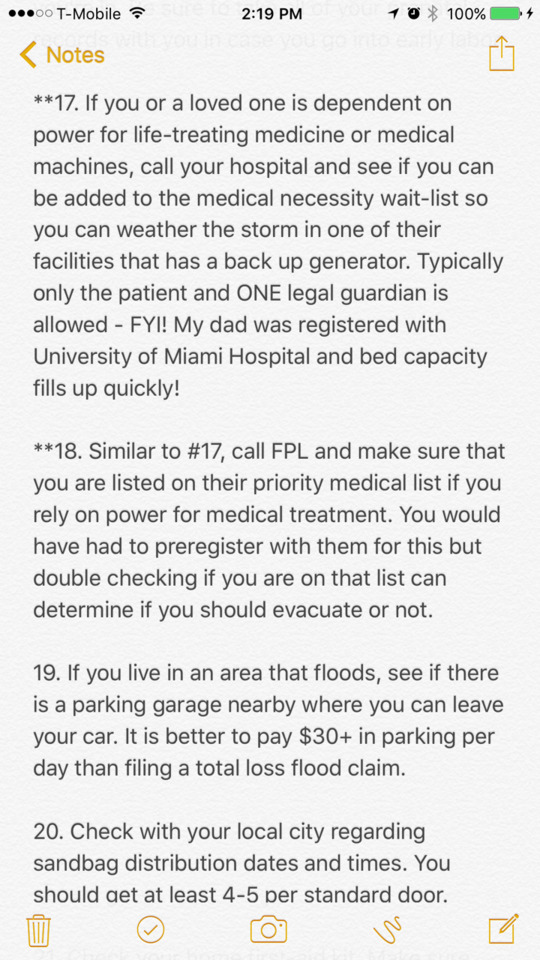
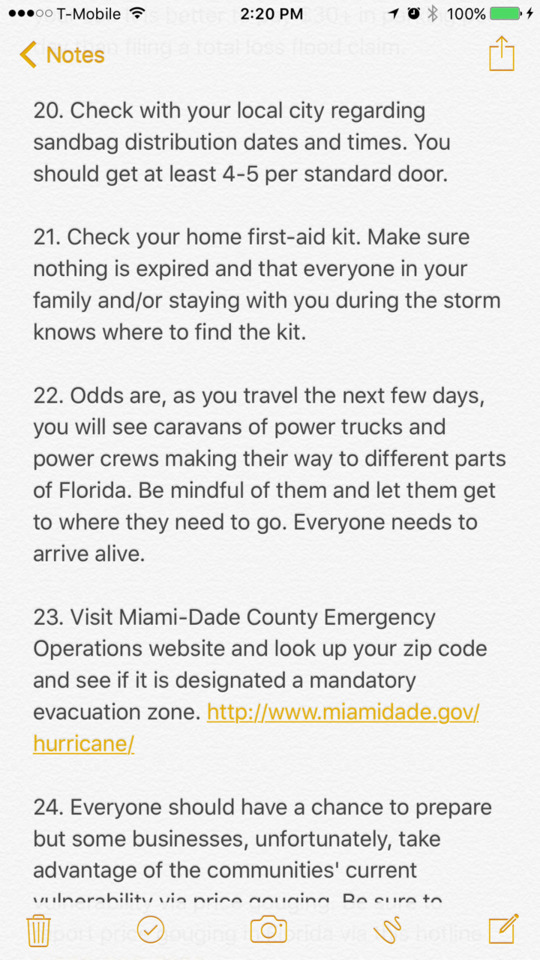
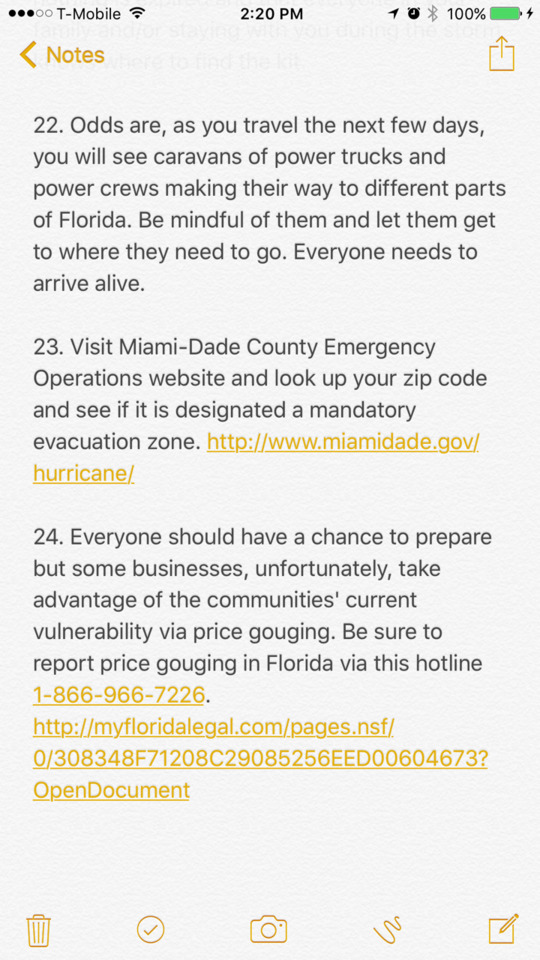
TIPS FOR HURRICANE IRMA. STAY SAFE MY FLORIDA FRIENDS! Gas prices are already up to $3 and water is hard to find until new deliveries come in. I have to drive much farther out for supplies.
77K notes
·
View notes
Text

Hey guys! I’ve compiled a list of resources that are helpful when studying science in general, & also when studying specific branches of science. I hope you find it useful!
General:
Crash Course [Youtube]
Khan Academy [videos, practice worksheets, etc]
Bozeman Science [Youtube]
Veritasium [Youtube]
Kurzgesagt – In a Nutshell [Youtube]
Memrise [practice, app & web]
Thought Co. [articles]
iTunes U [app]
Sparknotes [notes on specific topics]
Wikiversity [articles]
Brightstorm [videos]
Cliffsnotes [study guides]
CK-12 [free online textbook]
Brilliant [problem-solving]
Alison [online courses]
Coursera [online courses]
Cosmo Learning [resources]
Biology
Amoeba Sisters [Youtube]
The Biology Corner
Learning Centre [animations]
Schmoop [study guides]
Beverly Biology [Youtube]
Chemistry
Periodic Videos [Youtube]
Tyler DeWitt [Youtube]
Chem Collective
Learn Chemistry
Chemistry Study Skills
Physics
Physics Central
Step-by-Step Science [Youtube]
Physics.org [revision & exam help]
Physics Galaxy [Video Lectures]
Open Yale Courses
the Physics Classroom
Earth Sciences
Geology.com
NASA
National Geographic [study resources]
Sporcle [study guide]
Instagram || Other Posts || Resources || About || Ask
6K notes
·
View notes
